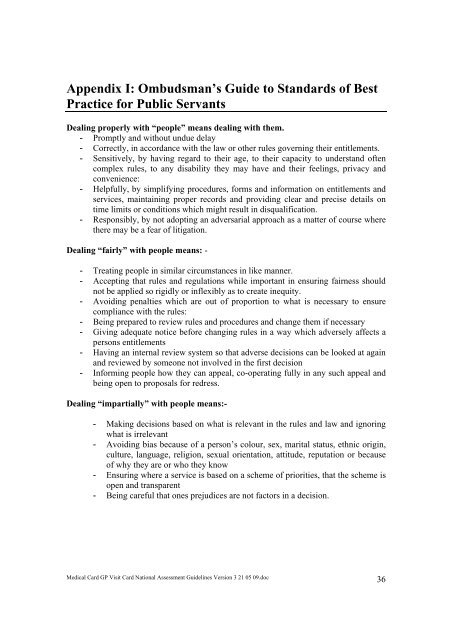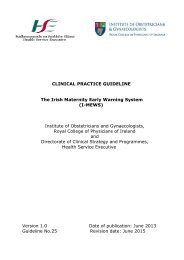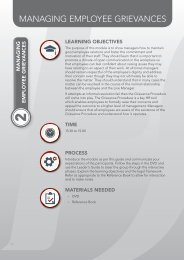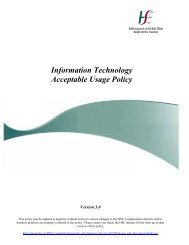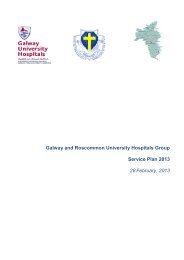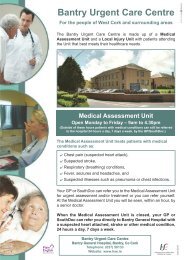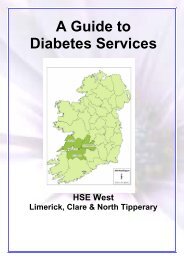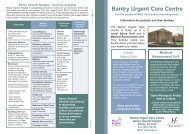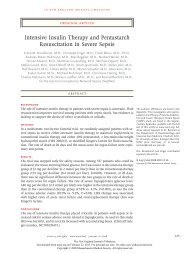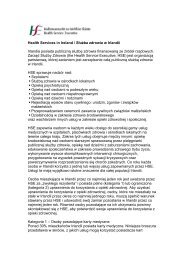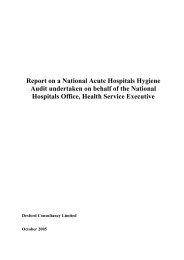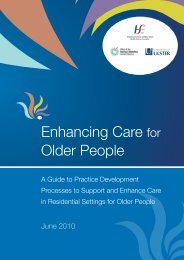Medical Card/G.P. Visit Card National Assessment Guidelines
Medical Card/G.P. Visit Card National Assessment Guidelines
Medical Card/G.P. Visit Card National Assessment Guidelines
Create successful ePaper yourself
Turn your PDF publications into a flip-book with our unique Google optimized e-Paper software.
Appendix I: Ombudsman’s Guide to Standards of Best<br />
Practice for Public Servants<br />
Dealing properly with “people” means dealing with them.<br />
- Promptly and without undue delay<br />
- Correctly, in accordance with the law or other rules governing their entitlements.<br />
- Sensitively, by having regard to their age, to their capacity to understand often<br />
complex rules, to any disability they may have and their feelings, privacy and<br />
convenience:<br />
- Helpfully, by simplifying procedures, forms and information on entitlements and<br />
services, maintaining proper records and providing clear and precise details on<br />
time limits or conditions which might result in disqualification.<br />
- Responsibly, by not adopting an adversarial approach as a matter of course where<br />
there may be a fear of litigation.<br />
Dealing “fairly” with people means: -<br />
- Treating people in similar circumstances in like manner.<br />
- Accepting that rules and regulations while important in ensuring fairness should<br />
not be applied so rigidly or inflexibly as to create inequity.<br />
- Avoiding penalties which are out of proportion to what is necessary to ensure<br />
compliance with the rules:<br />
- Being prepared to review rules and procedures and change them if necessary<br />
- Giving adequate notice before changing rules in a way which adversely affects a<br />
persons entitlements<br />
- Having an internal review system so that adverse decisions can be looked at again<br />
and reviewed by someone not involved in the first decision<br />
- Informing people how they can appeal, co-operating fully in any such appeal and<br />
being open to proposals for redress.<br />
Dealing “impartially” with people means:-<br />
- Making decisions based on what is relevant in the rules and law and ignoring<br />
what is irrelevant<br />
- Avoiding bias because of a person’s colour, sex, marital status, ethnic origin,<br />
culture, language, religion, sexual orientation, attitude, reputation or because<br />
of why they are or who they know<br />
- Ensuring where a service is based on a scheme of priorities, that the scheme is<br />
open and transparent<br />
- Being careful that ones prejudices are not factors in a decision.<br />
<strong>Medical</strong> <strong>Card</strong> GP <strong>Visit</strong> <strong>Card</strong> <strong>National</strong> <strong>Assessment</strong> <strong>Guidelines</strong> Version 3 21 05 09.doc 36


